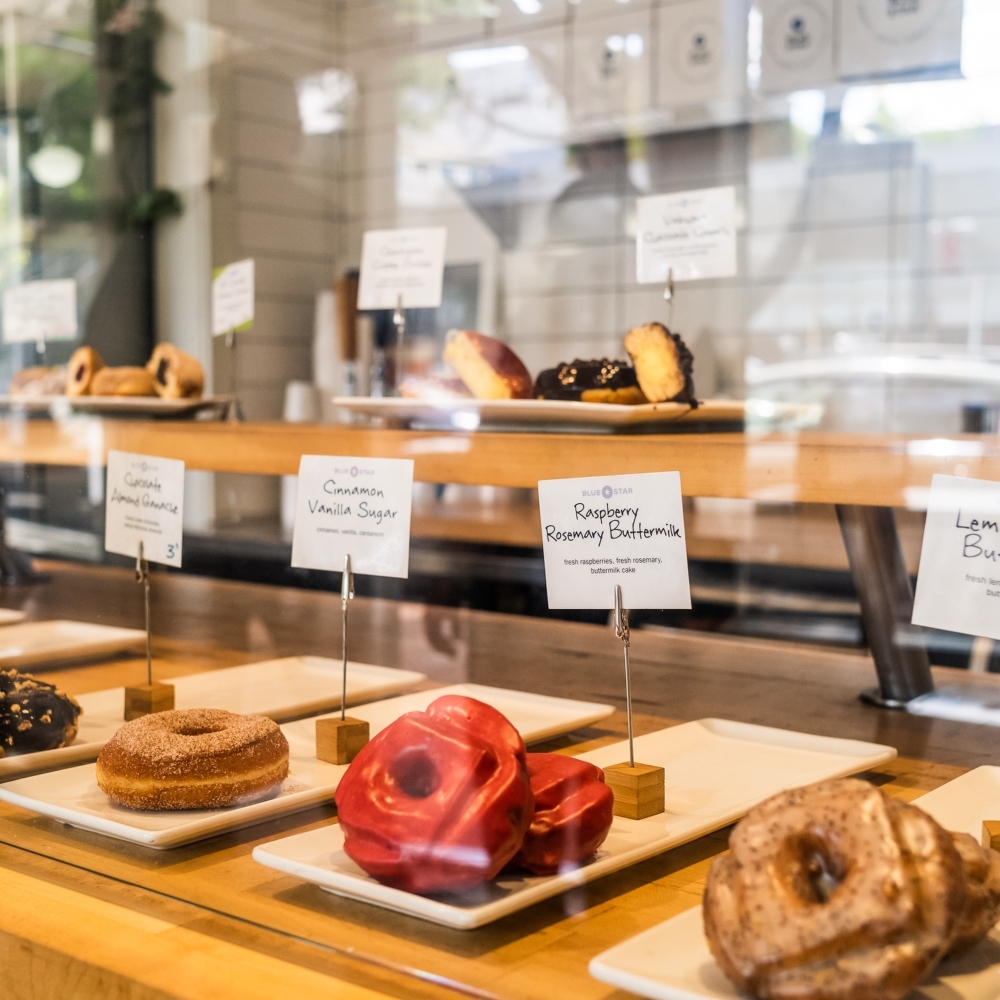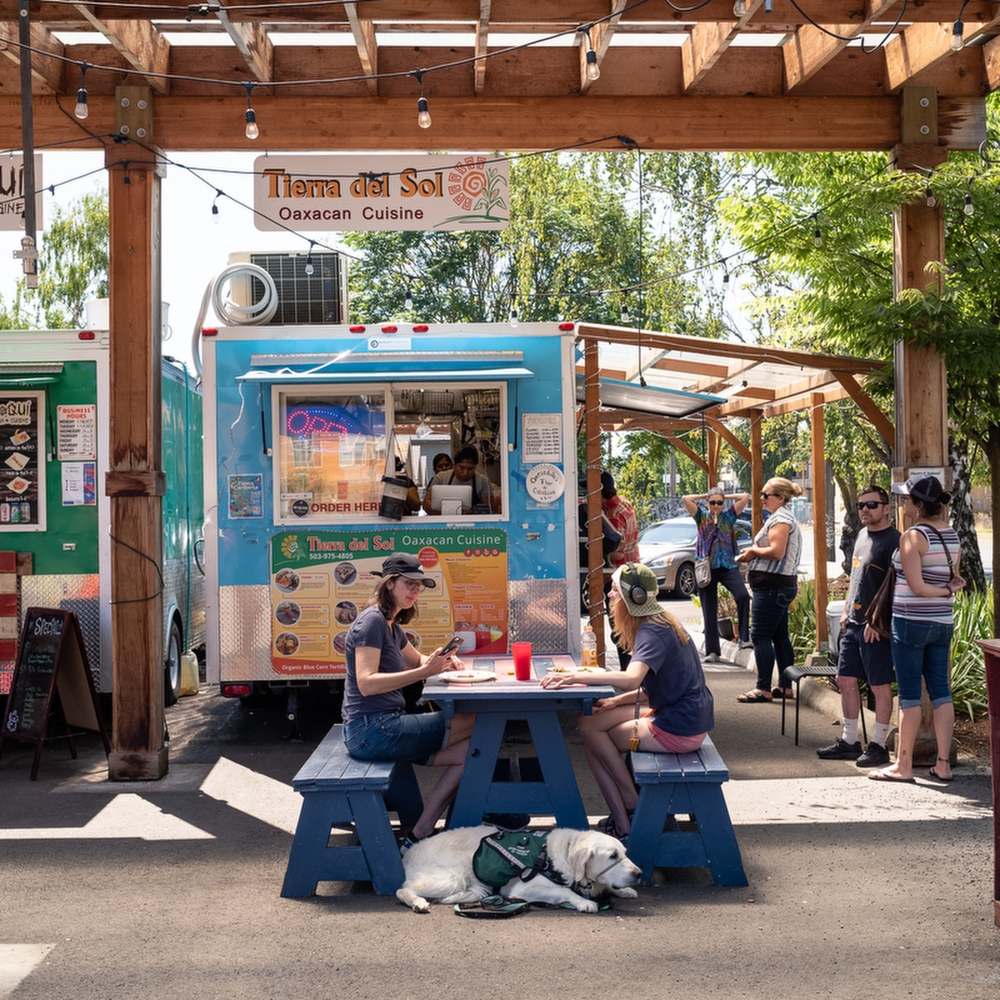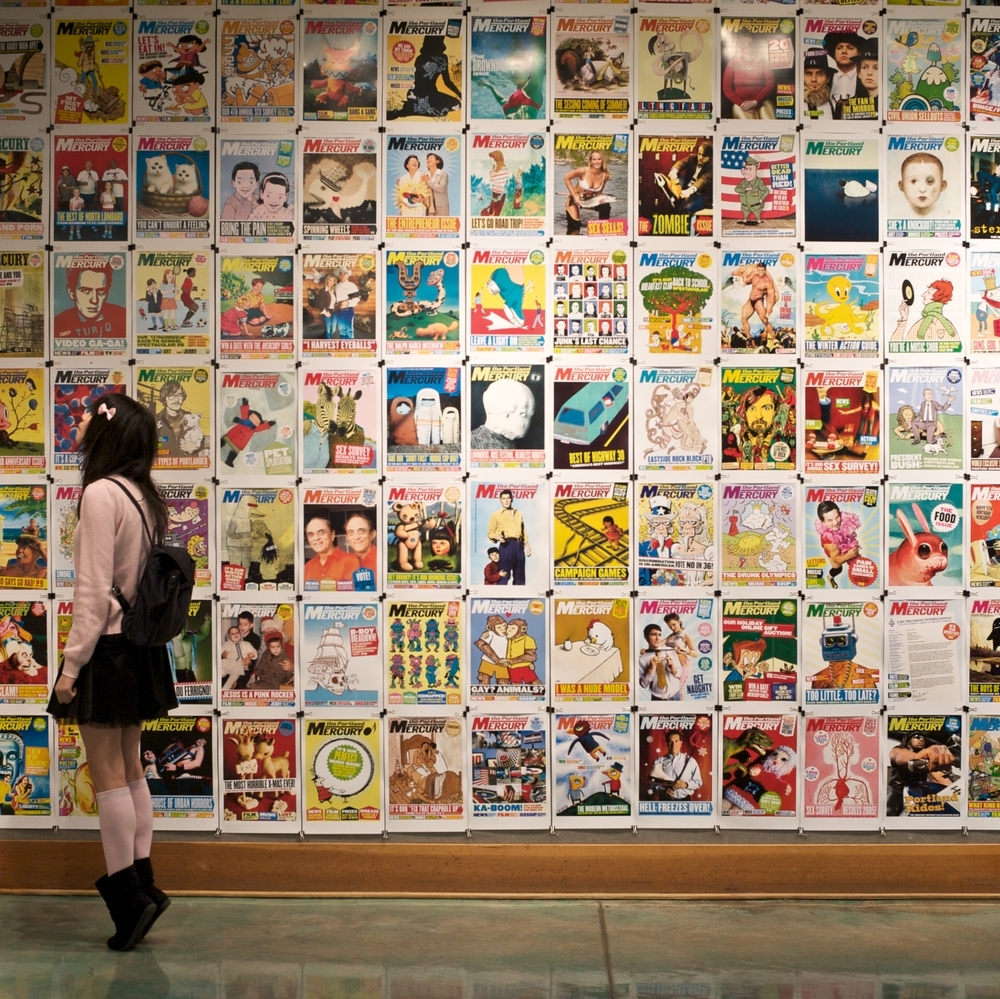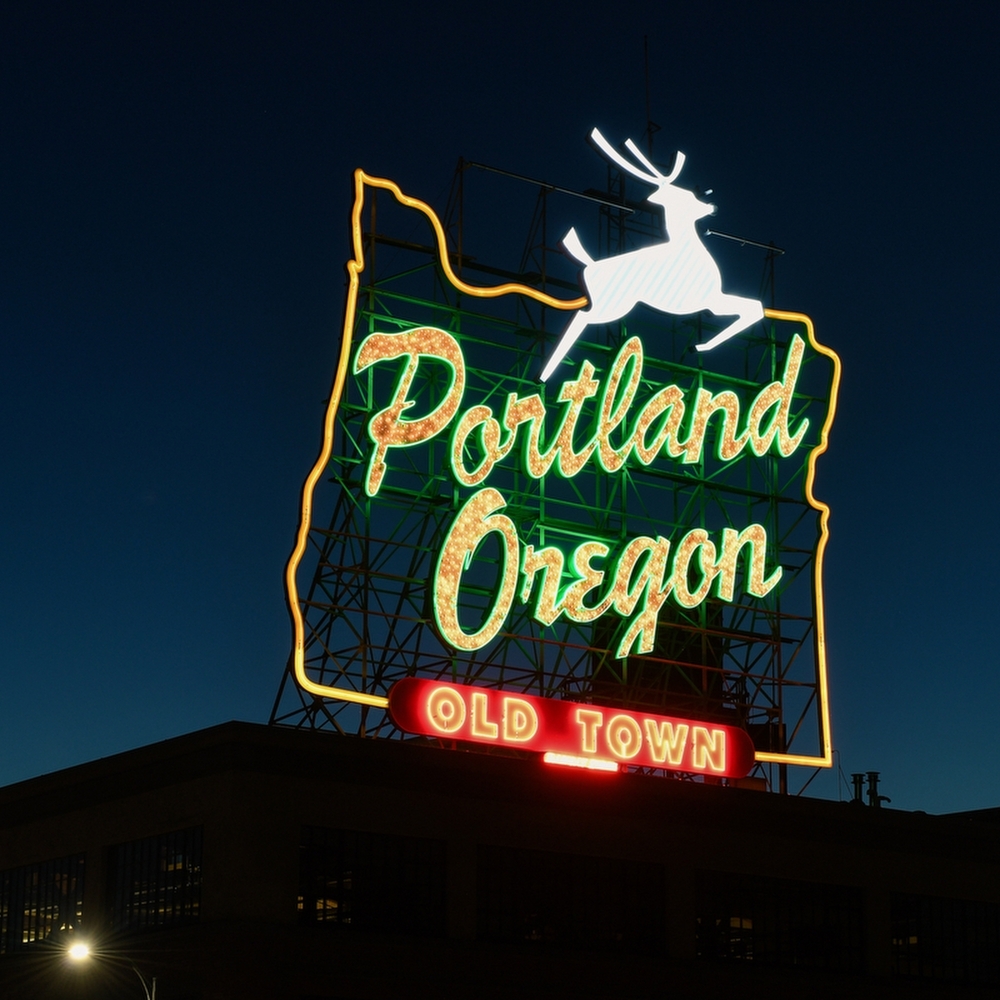This post is adapted from the Uproxx Fall Experience Guide, found here.
The question I asked every travel writer when submitting to the Uproxx Fall Experience Guide was the same, “Why now?” “Why is this entry relevant at this very moment?” It’s a question they turned right back on me when I suggested Portland — the town where I was raised — to sit atop the pack as our #1 destination. And when people asked me that question, whether it was my fellow contributors, my Deputy Editor, or my friends back home, they asked it with an eyebrow arched and some serious emphasis on both the “why” and the “now.”
The implication, especially from my friends in P-Town, was that I was letting nostalgia cloud my judgment. Because Portland has, undoubtedly, fallen on difficult times (Rolling Stone just called it a “far-right proving ground” last week). Certainly, there’s more visible tension than during in the Rip City / “littlest big city” years back in the 1990s; the hipster food boom / “most liveable city” era of the 2000s; or the Portlandia / “Keep Portland Weird” wave of the 2010s. Visiting Portland for two months over the summer, I saw unhoused encampments stretching entire city blocks, stolen bike chop shops that spilled out into busy streets, and beloved buildings covered in tags or boarded up. I also heard story upon story of the violence that has erupted with troubling frequency throughout the city. Clashes that have marred the historically attended, predominantly peaceful BLM protests, marches, and gatherings (and resurfaced as recently as last month).
At times, my conversations about my home city got pretty heavy. So seriously, why now? Of all the years, why pick Portland in 2021?

To answer that question is to challenge the very idea of why we travel. Is it always about having a glossy vacation, unmarred by real-world concerns? I hope not. I like daiquiris on the beach more than most and I can laze in a spa with the best of them, but if that’s as deep as your trips ever get, travel starts to seem frivolous. It’s a slippery slope from “I only go on vacation to relax” to languishing with the lotus-eaters.
Going to Portland right now isn’t going to be purely relaxing. Even if you stay in the city’s newest hotels, eat at its most acclaimed restaurants, and visit its most buttoned-up bars, you will see reminders of social unrest and interact with the unhoused population. Don’t look away (better yet, get involved — donate time, resources, or money to the Blanchet House or the Portland Rescue Mission). Confronting big issues is an essential part of travel. So is helping beloved destinations recover by infusing local economies with cash.
A trip to PDX this fall is a chance to be part of the evolution of a travel destination that has appeared on the “must visit” lists of so many outlets over the years and could use a good jolt of tourist dollars right now. It’s an opportunity to bear witness to the city in all its complexity, rather than just going because you heard about the good donuts and craft beer. It also opens the door to exploring a city in transition on many levels — a fact which is plain to see when you look through the prism of Portland’s most notable obsession: food.

While the first Portland food revolution (roughly 2001-2010) was about the creativity and skill of chefs who were mostly white, mostly male, and mostly all tattooed with the same pig butchering chart, its current wave is much more inclusive. Eem was a 2020 hot list pick for restaurants and its white curry with burnt ends epitomizes the synergy that’s possible when the “star chef” model is abandoned. Chefs Akkapong Earl Ninsom of Lang Baan, Hat Yai, and Paadee and Matt Vicedomini of Matt’s BBQ and Matt’s BBQ Tacos joined together to create a restaurant that highlighted both of their talents. The results are astounding and Ninsom’s newest venture, Lazy Susan, has been the standout hit of the pandemic.
Moreover, after the Portland food scene became emblematic of the city’s larger issues with diversity and inclusion, BIPOC voices have begun to make inroads in the food and beverage sectors. George Johnson, founder of Assembly Brewing, PDX’s first Black-owned brewery, has drawn rave reviews both for his beer and his Detroit-style pizza. In wine, Bertony Faustin became the first Black winemaker in Oregon back in 2008, opened a tasting room downtown at the height of the political tension in 2020, and has since mentored Tiquette Bramlett, the first Black woman to run a winery in US history (Vidon Vineyard, in nearby Newberg).
“Portland was at a ‘lowest point’ during 2020,” Faustin told me recently. “That spring and summer put a magnifying glass on the city’s issues, but I feel like we’re on the uptick now in a major way. Regardless, you can’t wait ’til everything is creamy to take part. That’s why I opened The Crick, my tasting room, when I did. Because of my career as the first Black winemaker in Portland, I felt like it was my role to come downtown and show people that it’s a good place to start a business, even in the tough times. There are opportunities now that might not have been available for news businesses, especially for minority business owners.”
(If you’re looking for more Black-owned food in Portland, I regret to say that my beloved Stoopid Burger closed during the city’s extended shutdown, but Nacheaux — a Mexican-Cajun fusion concept with an inventive menu that inspires fierce customer loyalty — is new and getting tons of love. A comprehensive directory of Black-owned Portland-based food options can be found here.)

More than any city I’ve visited this year, the crucial social justice conversations of the past half-decade seem to be leading to a tangible shift in PDX. Over the summer, I saw bands and comedians recognizing the traditional Indigenous owners of the land they were performing on — a formality of almost all events in Australia but one that’s relatively new in the US. It’s a good change and one I’d never witnessed, pre-pandemic. That cultural respect isn’t just lip-service, either, The Native American Community Advisory Council is helping the city decolonize public spaces, including the removal of the once-iconic duck pond at Westmoreland Park, returning the waterway to a wetland featuring traditional foods.
While in Portland for eight weeks over the summer, I spoke with waitstaff and Uber drivers and Portland Tourism officials and locals young and old about the unhoused community in the city and — to a person — the conversations were filled with compassion and nuance. The city I currently live in, Laguna Beach (CA), also has a very visible unhoused community and I rarely hear so much empathy from locals. That’s not to say that all people agreed on the matter, this is a conversation that has been central to the city’s identity since I was a child and it’s not an easy fix. But it’s worth noting that people across the city seem to have genuine regard for the humanity of the unhoused.
Writing in a “travel list” format about the positive and negative aspects of the 104 days of continuous protests (and the many subsequent protests) in Portland after the murder of George Floyd is a fools errand. With that said, the groups that have come out of those protests — like the Moms United for Black Lives, formerly Wall of Moms — will certainly help to guide the city’s new era. In May, Portland’s paper of note, the Oregonian, published a comprehensive review of the one year anniversary of the protests and didn’t attempt to draw any easy conclusions about the success or failures. Instead, they made the point that public protests are part of how the local culture evolves and, in that, a piece of the city’s identity.
So rather than visiting hoping not to see protests of any sort, it’s worthwhile to wonder what any protests you might see have to say about the city (and what they might teach you about your own biases and beliefs). Speaking personally, the protests I saw in the city were all very mellow #BLM car parades. (It goes without saying that you should avoid planned Proud Boys rallies or any other alt-right or anarchist events.)

Though travelers may harbor concerns about Portland after a rough year in the news, hotel properties aren’t banking on their hesitation lasting long. 2018 and 2019 were big years for hotel openings in the city and that pace looks to resume early next year. There are five properties set to open in 2022 and early ’23, including the first Tokyo Inn on the West Coast, the first Proper in the PNW, and hotels from Hyatt and Ritz-Carlton. Two hotels actually managed to open in 2021, too. Moxy Portland is sleek, boasts multiple gathering spaces, offers bike rentals, and features rooms that reference Portland’s Indigenous community and heritage. The PaliSociety’s Hotel Grand Stark is even more impressive — doubling down on the midcentury vibe of the city’s industrial-era buildings with interior design that could be set dressing for an early season of Mad Men. The whole property leans heavily into jade green and feels like a memory of Portland that I never actually experienced firsthand but still somehow know (plus the beds are extremely comfortable).
It’s true, Portland may not be polished the way it once was. And the extremist violence is genuinely troubling, make no mistake. But seeing a place with clear eyes is always more authentic than viewing it through rose-colored glasses. There’s no ignoring social issues in Portland right now, nor is there a desire to. And that’s a good thing. Being willing to face the reality of the situation in the places you visit is the core difference between “travel” and “tourism.”
So yes, go to Portland. But not just for the famous food carts and pods or the new hotels or the many many bars or the dance clubs like Holocene and CC Slaughters or the endless live music options or the comedy scene or the city’s prominent LGBTQI community or the commitment to public art or the fact that it was named America’s Best Pizza City a few months ago or because it’s home to one of the largest urban forest reserves in the nation or those incredible donuts or… those elements were all in place in some form pre-pandemic, pre-protests, and pre-extremist violence. Go to witness a city that features all of those incredible attributes and is also in the midst of the biggest transition it’s seen in more than 25 years.
Go to be part of the city’s new era. An era that’s sure to be more inclusive and progressive than those that preceded it. Go to support new development and fresh ideas. Go to bear witness to the creative minds like Bertony Faustin who are helping get P-Town back on track.
“Don’t write this city off,” Faustin says. “Portland thrives as an underdog. Give it a chance and it’ll surprise you.”
Check Portland’s COVID guidelines here.
We’d like to acknowledge and honor the original peoples of this land, the Confederated Tribes of Siletz Indians, the Confederated Tribes of Grand Ronde, the Multnomah nation, and the Stl’pulmsh (Cowlitz) nation.







